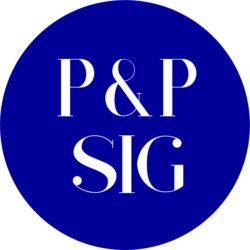Intercom-January 2004; By Holly E. Harkness; Summary by Maria Christophel (2006)
This article presents the reasons why the Sarbanes and Oxley Act offers technical writers career opportunities similar to those offered by Y2K. It defines the Sarbanes Oxley Act (SOX) and notes that public owned companies are required to comply with the regulation and therefore, some companies are spending millions in their projects. The articles provides a br /ief background of how the author’s team became involved with the project and it notes that the team wrote polices, procedures, processes, etc. The role of the technical communicator offers opportunities for demonstrating skills such as creating processes, identifying gaps, documenting controls, updating documents, etc. The article advises that to get started a technical writer should emphasize experience writing policies and procedures, and the knowledge of SOX and its interpretation.
Policies and Procedures – An STC Niche
Intercom-November 2005; By Raymond E. Urgo; Summary by Maria Christophel (2006)
This article explains the creation of the P&P Special Interest Group (SIG) as the first body in the world for offering assistance to policies and procedures technical writers.
Marketable Skills for the Policies and Procedures Professional
Proceedings-1995; By Raymond E. Urgo; Summary by Maria Christophel (2006)
This article provides a brief insight in the various skills that are required from Policies and Procedures writers. The article states that technology advancements and work force reduction require writers to acquire or become stronger in their marketing, managerial, analytical, instructional, communication, and people skills.
Managing a Company-Wide Policies and Procedures Project
Proceedings-1996; By William B. Crepes; Summary by Maria Christophel (2006)
This article discusses three important factors that must be considered when managing the documentation of policies and procedures company-wide without a disruption to business operations. The people factor section explains the reasons and methods for involving executive management in the project, and gaining the acceptance of the employees. The project factor section explains the methods for establishing scope, priorities, scheduling, and prototype development. The publishing factor explains the reasons for analyzing audiences, making documentation recipient lists, and controlling the distribution.
Full-Employment Legislation for Technical Writers
Proceedings-1993; By Carolyn Dean; Summary by Maria Christophel (2006)
This article narrates the scenario the Author experienced when she began working on a project to implement regulations in a nuclear facility. It lists the different opportunities regulations provide to technical writers; policies and procedures development is counted among these opportunities. It explains how writers can take advantage of these opportunities created by legislation by advising to get immersed into the regulation and taking a related class.
Documenting Procedures After the Sole Subject Expert Has Left …
Proceedings-1999; By Audrey Cielinski Kessler; Summary by Maria Christophel (2006)
This article narrates the scenario of a company that was left without the intelligence of the human resources expert. It describes the methods and strategies that the technical writer created to straighten out the mess. It provides insight as to questions the technical writer should ask for writing procedures that are organized and effective. Finally, it informs about the problems that arise when the processes are reviewed and especially when they are not reviewed.
Developing ISO 9000 Procedures
Proceedings-1996; By Ralph E. Robinson; Summary by Maria Christophel (2006)
This article discusses document and data control issues as the common causes of registration failure with ISO. It presents the reasons why companies need to comply with ISO requirements, and the ISO 9000 Quality System Concept. It explains the documentation structure, the main goal of documentation, its effect on the registration process, and the control requirements for documentation. The article also presents these ISO standards as career opportunities for raising the profile of technical writers within the organization.
Contracting and Consulting for Policies & Procedures Engagements
Proceedings-1999; By Raymond E. Urgo; Summary by Maria Christophel (2006)
This article states that employment reduction has resulted in a decrease of policy and procedures writers as employees, but it has increased the amount of opportunities for consultants and contractors. The article advices P&P writers seeking to engage their services for either consulting or contracting to be flexible and understand the three roles for leveraging services.
Choose More Than a Job… Choose How You Want to Work
Proceedings-2003; By Ronald Statt; Summary by Maria Christophel (2006)
This article describes the advantages and disadvantages of working as a consultant, a contractor, or a company employee. Benefits such a traveling, education, experience, job changes, income, project assignments are compared between these three types of working as a technical writer. The article also discusses the drawbacks of insurance, taxes, and legal issues that an independent contractor must face.
A Career on Campus- Writing Administrative Policies for the Public University
Intercom-November 2005; By Catherine Reynolds; Summary by Maria Christophel (2006)
This article explains how the skills acquired in the corporate environment can be of benefit to a writer employed in a higher education institution. It describes the opportunities offered to the writer for making a contribution to the elaboration of policies that impact the educating community. It also explains how different strategies such us learning the environment can be used to promote relevant and clear communication to the different groups of a campus community.
